
Henry Riley 7am - 10am
10 January 2023, 08:18 | Updated: 10 January 2023, 09:07
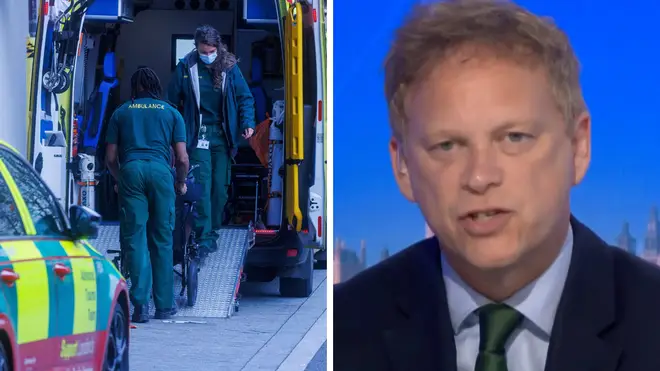
Business Secretary Grant Shapps told LBC this morning that the NHS must do whatever it takes to tackle the current crisis, including treating patients in temporary outbuildings.
Mr Shapps told Nick Ferrari at Breakfast on LBC this morning: “The most important thing is to deal with the backlogs.
"I’m in favour of the NHS doing whatever it needs to do to clear those backlogs, and if that means temporary, modular - whatever or using clinics closer to people or whatever else is required.
“For heavens sake lets get on and do those things.
“Through covid the NHS built up enormous pressures… and having now to go back to that elective surgery that didn’t happen is putting huge pressure on.”

Business Secretary Grant Shapps says he is in 'favour of the NHS doing whatever it needs to do'.
The comments by Mr Shapps come after the health secretary said people could be treated in cabins in hospital car parks.
Steve Barclay said the idea would contend with staff shortages and record waiting times. He has pledged £50m to pay for the temporary buildings to create extra space for overcrowded A&E departments.
Meanwhile fresh hope has arisen that two possible solutions to the long-running NHS pay dispute could bring an end to a series of strikes.
Mr Barclay is reportedly considering offering a one-off lump sum to striking nurses, as well as a pay rise that would also be back-dated to the last three months of the financial year.
Any pay deal could be linked to changes in working practices to make NHS staff more productive, the Telegraph reported.
That marks a change from previous rounds of negotiations, when ministers had refused to discuss pay, arguing that NHS wages were a matter for an independent body.
Unions said on Monday night that "significant progress" had been made in talks, but that ambulance strikes planned for Wednesday would not be cancelled without a concrete pay deal on the table.
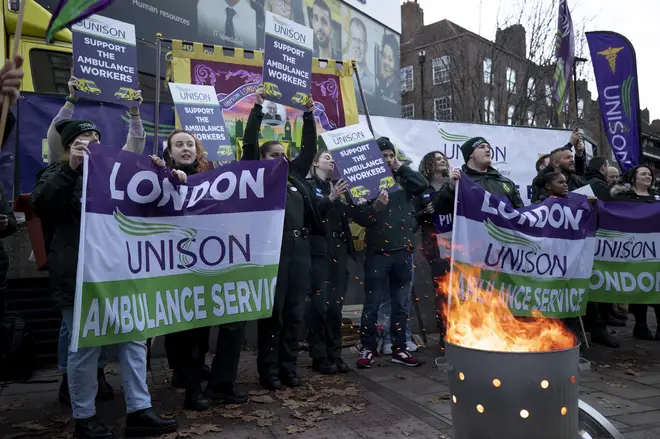
Nurses are due to strike next Wednesday and Thursday (January 18 and 19), and Royal College of Nursing (RCN) bosses said that the talks were "bitterly disappointing", and that ministers "have a distance to travel" to prevent a second set of strikes on January 18 and 19.
Ministers have also been speaking to rail and teaching unions as the government seeks to prevent further industrial action in those industries.
Unions are demanding pay rises that reflect the high levels of inflation, but ministers have said offers must be "affordable".

Former Health Secretary Alan Johnson feels like the NHS is 'close to collapse'
Read more: Andrew Marr: 'Can the NHS model, the pride of Britain, survive much longer?'
Ahead of the summit talks, the PM, Rishi Sunak, didn't deny that the government could offer a one-off payment to public sector workers to help with the cost of living.
Unite negotiator Onay Kasab said the Government told the union they would need to “justify” a payment through productivity.
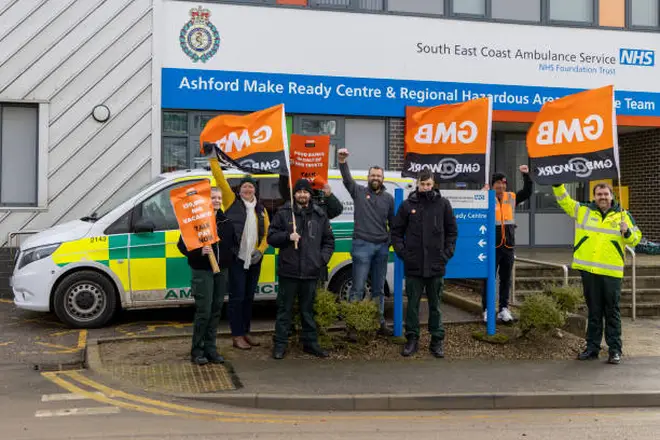
Other union representatives were slightly more positive following the meetings, with Unison's head of health Sara Gorton saying there had been some progress.
But Ms Gorton added that there had been "no tangible commitments" and the scheduled walkouts would go ahead.
She said: "It was a very civil meeting. We did actually manage to talk about pay. We didn't get the tangible concessions that we might have hoped or that would enable us to call off the strikes later this week and next.
"But it was definitely progress, we were in a room with the Secretary of State, talking about pay. I think he has asked for our help to help with the Treasury to make the case for investment in pay."
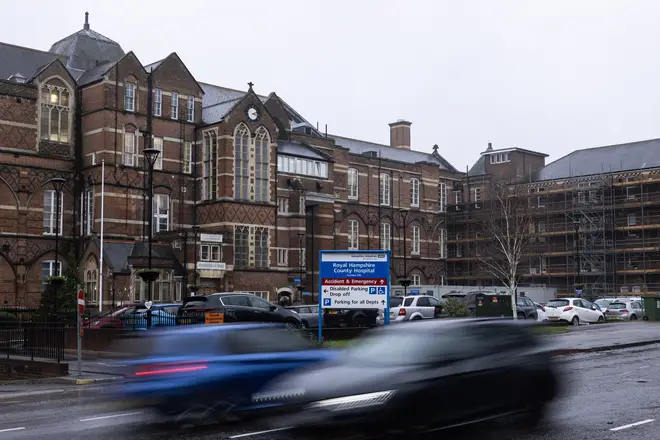
"We will certainly do that but we didn't get the tangible outcome that we were hoping for."
Rachel Harrison, of the GMB union, said the negotiations "fell well short of anything substantial that could stop this week's strikes".
She said there was "some engagement on pay" but no "concrete offer".
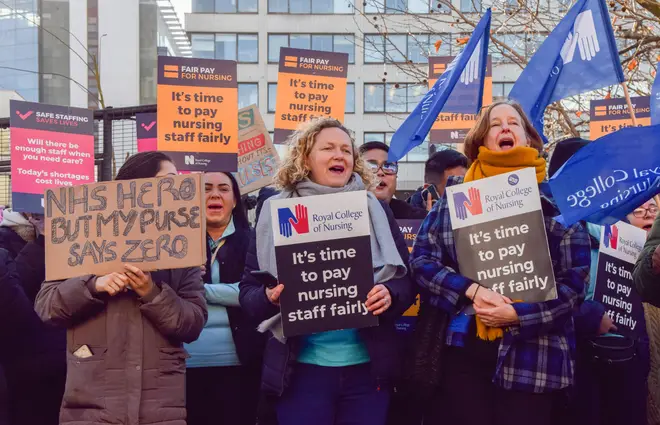
It means ambulance strikes set for January 11 and 23 are expected to proceed.
Elaine Sparkes, from the Chartered Society of Physiotherapy, said the talks had been "more constructive" than previous discussions but "there is nothing tangible on the table" and strike dates would be announced by the union later this week.
Last week, Rishi Sunak said he wanted to have a “grown up, honest conversation with union leaders about what is responsible, what is reasonable and what is affordable for our country when it comes to pay".
Read more: Andrew Marr: 'Can the NHS model, the pride of Britain, survive much longer?'
It comes as the NHS continues to struggle amid a dire crisis, with a huge wave of flu cases and other seasonal infections overwhelming staff.
Mr Barclay said on Monday that 3,000 patients who are fit to leave would be discharged from NHS hospitals into care homes and other settings to free up beds.